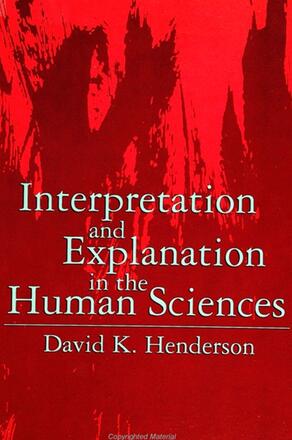
Interpretation and Explanation in the Human Sciences
Alternative formats available from:
Description
Henderson examines the foundations of an analytic social science approach to develop a well-integrated account of the human sciences, focusing on the pivotal notions of interpretation and explanation. The author acknowledges the importance of interpretive understanding in the human sciences, and proposes a methodology that reflects both interpretive practice as well as scientific methodology. He refutes the methodological separatists who hold that the logic of explanation and testing in the human sciences is fundamentally different from that of the natural sciences, and examines in detail the constraints on interpretation. In providing an integrated treatment of these two central issues in social science, Henderson offers a thorough analysis of the adequacy of interpretation and the nature of explanation in the human sciences.
David K. Henderson is Assistant Professor of Philosophy at Memphis State University.
Reviews
"This book promises to make an extremely important contribution in breaking a major logjam in the philosophy of social science and interpretation generally. It integrates a wealth of related philosophical literature and draws upon, and applies itself to, scientific material in an effective way. " — Robert Feleppa, Wichita State University
"This book is the first of which I know to attempt a comprehensive assessment of Davidson's philosophy for key issues in the philosophy of social science. In addition, and equally importantly, the author offers an in-depth assessment of arguments regarding the nature of explanation in social science and the relation of these explanations to those in the natural sciences. No other work, so far as I am aware, offers an analysis of recent work on explanation matching the breadth and depth of Henderson's. The issues which he discusses, both with regard to interpretation and explanation, are at the very center of both traditional and current debate. " — Paul A. Roth, University of Missouri, St. Louis